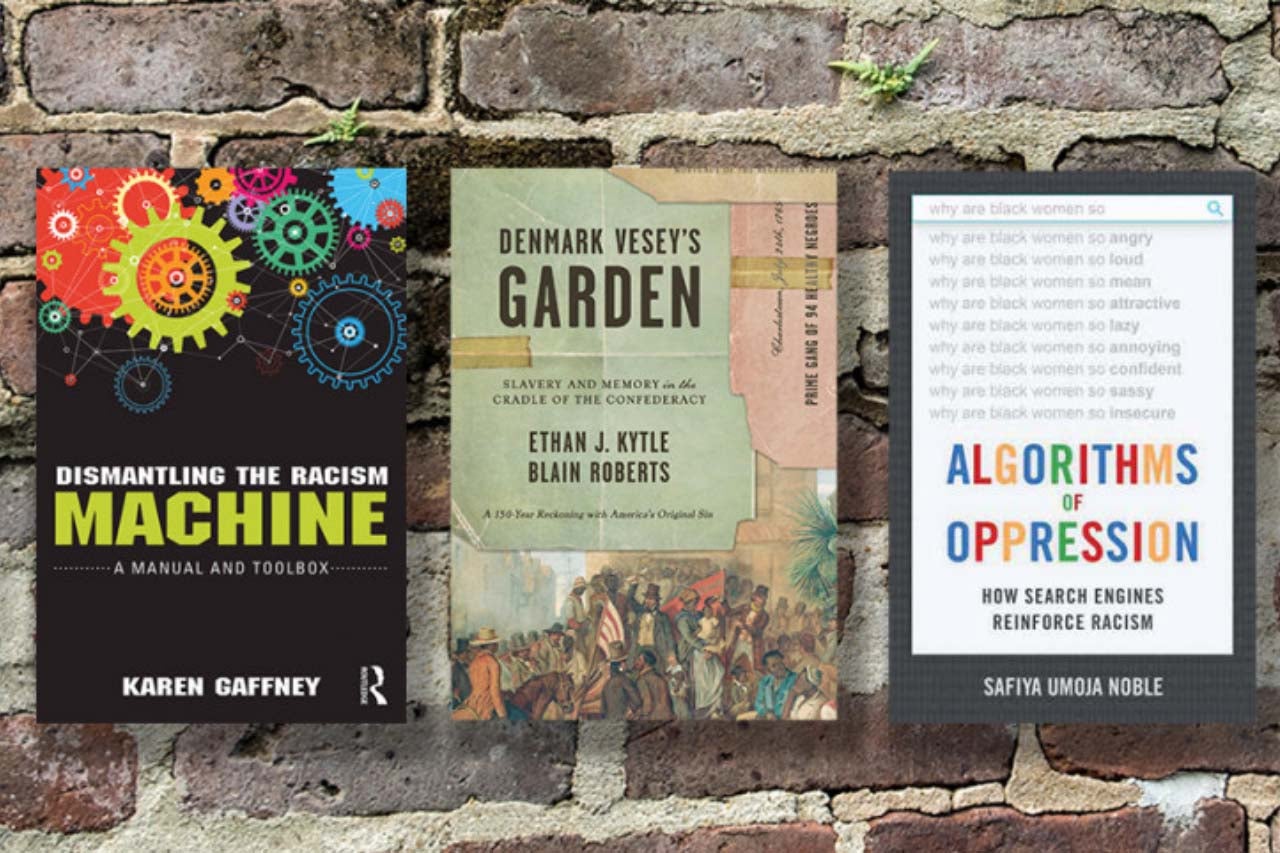So much can evolve from a simple email exchange. And that’s exactly what happened this summer when Ashley Lavender, the associate director of the Center for Sustainable Development, connected with Burton Callicott, the head of research and instruction at Addlestone Library. Lavender was seeking resources to support her summer interns in a reading group she’d formed, and Callicott and his library colleagues delivered – in a big way.
“To augment the experience for our interns,” Lavender explains, “we formed a book group. The goal was to help equip students with the knowledge and critical thinking skills necessary to assess what was going on around them and help them make informed decisions about their next course of action. These students are action-oriented, compassionate, motivated and quite perceptive, yet they each shared that they were at a loss for finding positive ways to contribute to the effort of combating racial injustice. So, collectively, we chose to read Ibram Kendi’s How to be an Antiracist. We all felt that the process of taking a deeper dive into and reflecting on Kendi’s work would create a more cognizant and cohesive group.”
Unfortunately, at the time, copies of that book were tough to come by. So, Lavender sought help from the library.
Almost simultaneously, library staff had been moving in the same direction. Heather Gilbert, associate dean of collection and content services, along with her staff, had already begun compiling a list of titles pertaining to anti-racism and social justice.
“There was quite a bit of serendipity involved,” explains Gilbert. “When Burton passed along Ashley’s request for additional copies of Kendi’s book, we had been investigating ways to increase the campus community’s access to anti-racist literature.”
The result is an assortment of materials accessible through a new digital collection called Resources for Teaching Race, Equity and Inclusion. Titles include How to be an Antiracist, Race Talk and the Conspiracy of Silence, Denmark Vesey’s Garden, Race, Equity and the Learning Environment, Invisible Man, and The Beautiful Struggle, among many others.
To ensure the archive would be comprehensive, Gilbert and Lavender canvassed faculty and staff across campus for suggestions. Ultimately, they received input from Charissa Owens in the Office of Institutional Diversity, Deb Bidwell from the Department of Biology, Najeema Washington in Alumni Affairs and Marla Robertson from the MPA Program, as well as from Lavender’s summer interns.
Because these efforts were taking place near the end of the fiscal year, and budgets were tight, securing funding to procure so many titles – nearly 70 in all – proved difficult. That’s when Gilbert shared the initiative with John White, dean of College Libraries.
“He was incredibly supportive,” she recalls, “in part because he’d been working with Rénard Harris in the Office of Institutional Diversity and others across campus on a parallel initiative called Critical Conversations.”
Lavender and Gilbert both call it a true partnership.
“Collectively,” Lavender says, “we had to come up with about $10,000, but it was definitely a worthwhile expenditure for the College.”
Gilbert concurs.
“As collection development professionals, it’s our role to make sure that we support not just the pedagogical needs of the campus, but all of the scholarly needs. Having digital copies available is really important in the environment we’re all operating in now – the pandemic,” she says. “It’s vital the we offer broad access to these materials. That’s why, for each title, we have purchased at least three licenses. Earlier this summer, many of these titles were sold out and students couldn’t obtain them. Now, they can.”




